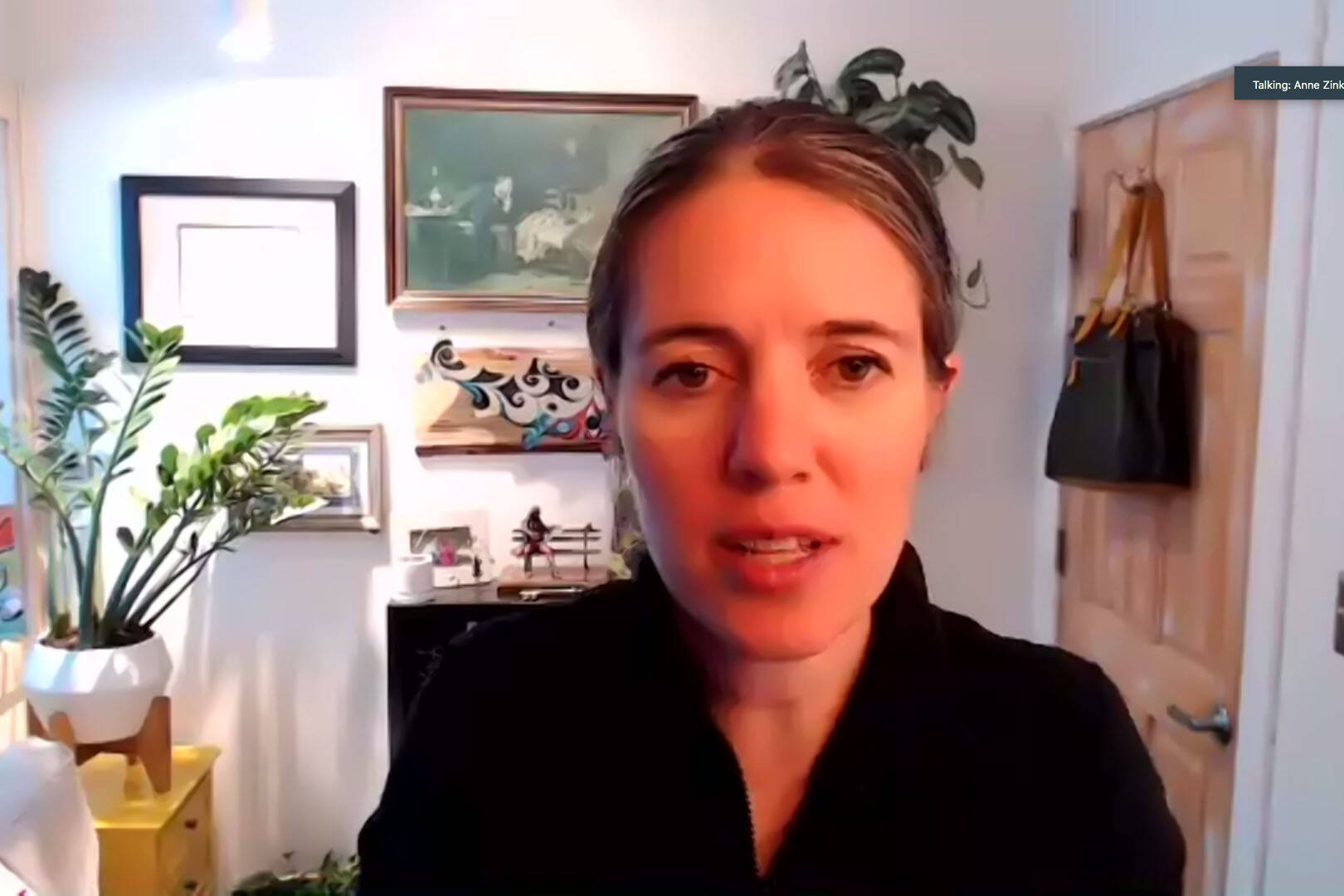Nearing the end of the second year of the COVID-19 pandemic — at a time when many people are wary of the health care system and midterm elections dominate the news cycle — state health experts on Wednesday reflected on the larger social and political landscape in which the public health sector is operating and discussed the challenges officials face to combat misinformation.
Chief Medical Officer Dr. Anne Zink said during a weekly science session that it’s important for people to realize that science changes as new information becomes available. She said that some may take that as mixed messaging; it’s really just how science evolves.
“Science is not a finite set of knowledge. It’s a journey,” Zink said. “Part of the reason we set up these (sessions) over two years ago now, was to make sure that you all as Alaskans could get your questions answered directly from Alaskans, who are here to serve you.”
Studies on emerging COVID-related conspiracy theories have seen links to information consumption habits — with people mistaking some social media posts as legitimate sources of news, the Associated Press reported last year.
Zink said members of the team at the Department of Health and Social Services are all paid by the state, not other interest groups or “big Pharma.” She also reiterated that their jobs aren’t the same as those performed by members of a medical or pharmacy board.
“We are here to support Alaskans with one mission, and that’s the health and well-being of Alaskans,” Zink said. “Again, we’re just here to provide information.”
Health officials have faced hostility from members of the public and even their own patients. During a media briefing in September, for example, state health experts fielded reports of “violence toward health care workers,” including being spat at and receiving threatening letters. Public health centers and local businesses have also reported instances of vandalism related to public health measures, including on the Kenai Peninsula.
Dr. Jeffrey Demain, the founder of the Allergy, Asthma and Immunology Center of Alaska, on Wednesday echoed what Zink said, reiterating that while the media works to disseminate information quickly, sometimes scientists need more time to present scientific findings past the observation stage.
“There’s many parts to establishing standard of care, so it’s not just one layer,” Demain said. “It’s got to go through a proper process in order for us to be sure that it’s effective, so I think that may be one of the delays we see.”
Local and state health experts have repeatedly debunked misinformation as the science has evolved over the course of the pandemic — including warning against self-medicating for COVID with drugs like ivermectin and hydroxychloroquine and assuring people that COVID vaccines are approved by federal health agencies and are not the same as gene-therapy technology.
“We’re not the whole health care infrastructure. We’re the team within public health here to share information and resources,” Zink said Wednesday. “We can’t tell you what to trust, we can’t tell you what not to trust. That is a decision that you have to make.”
The state science session is open to the public every Wednesday from noon to 1 p.m. To tune in, join the Zoom video conference or watch on the DHSS Facebook page live.
• Reach reporter Camille Botello at camille.botello@peninsulaclarion.com.

